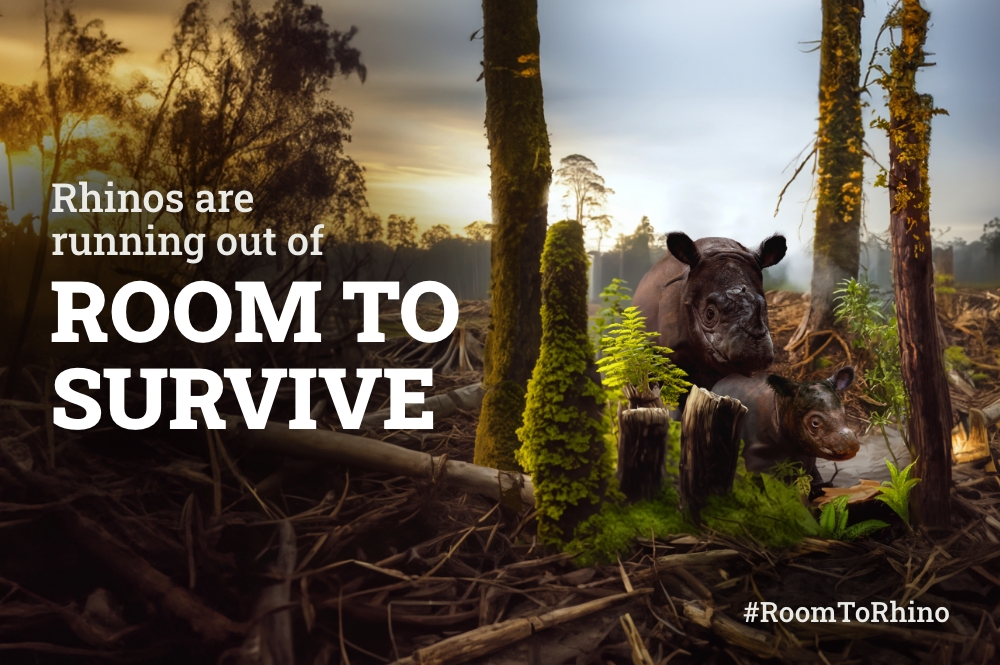Together, we can ensure there’s Room to Rhino.
Fewer than
80
Sumatran rhinos are left.
In modern times, few people have seen an elusive and rare Sumatran rhino in the wild. Yet these Critically Endangered rhinos aren’t only far-removed from people, but also from each other.
It didn’t used to be this way. These descendants of the prehistoric woolly rhinos once roamed across vast areas of Southeast Asia, possibly numbering more than 50,000. But after centuries of hunting, human encroachment and conflict, the few Sumatran rhinos that exist today cling on in fragments of primary forest across the islands of Borneo and Sumatra. Isolated from other members of their species, individual rhinos rarely meet, making breeding almost impossible.
Way Kambas National Park, in southern Sumatra, remains a refuge for Sumatran rhinos. Home to the vital Sumatran Rhino Sanctuary, and with a handful of wild rhinos thought to be still living in the Park, protection officers regularly patrol the 1,300 km2 area. Yet, despite its importance for Sumatran rhinos, Way Kambas is the only protected area in Indonesia without a buffer zone.
Villages surround the National Park on all sides. And, while many local people are very proud of their wildlife, the efforts of so many people to maintain their livelihoods and raise their families has inevitably led to encroachment inside the Park and the destruction of vital rhino habitat. Around one-third of the rhinos’ rainforest home has already been lost.
More than
1/3
of forest in Way Kambas has been lost.
Park authorities have worked closely with local communities to reduce encroachment, and today, as in Europe and many other parts of the world, local farmers are recognised and rewarded for their role as environmental stewards as well as food producers. This is an effective conservation strategy – because rainforest plant species grow so quickly, reforested areas can recover within just a few years, restoring vital habitat not only for rhinos, but also elephants, tigers, tapirs and the myriad other animals and plants that comprise this diverse and precious ecosystem.
Yet much land originally cleared for illegal farming remains degraded and resources for this essential conservation work are scarce. This year, a funding shortfall means that important habitat restoration may not be able to go ahead. And so our Christmas appeal, Room to Rhino, aims to plug this funding gap, supporting local people to plant seedlings and bring this landscape back to life. As people in Europe and beyond set up their own trees over the Christmas period, we can help our partners in Way Kambas National Park to plant trees in a very different landscape, providing much-needed habitat and food for Sumatra’s endangered wildlife.
Our goal is ambitious but achievable: to raise £20,000 to support the transformation of three sites in Way Kambas. Your contribution will help fund the growth of native tree species, with local experts and community members driving the restoration project forwards.








